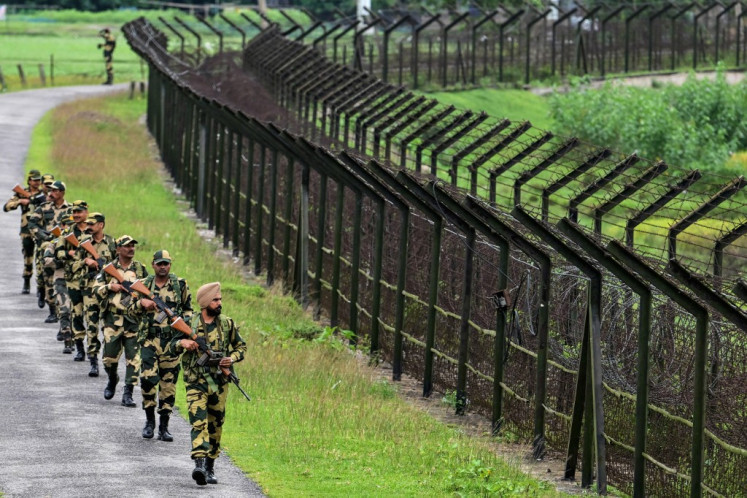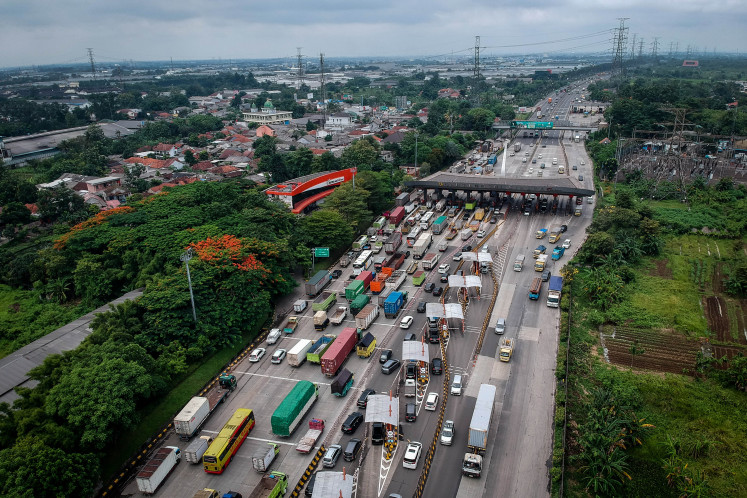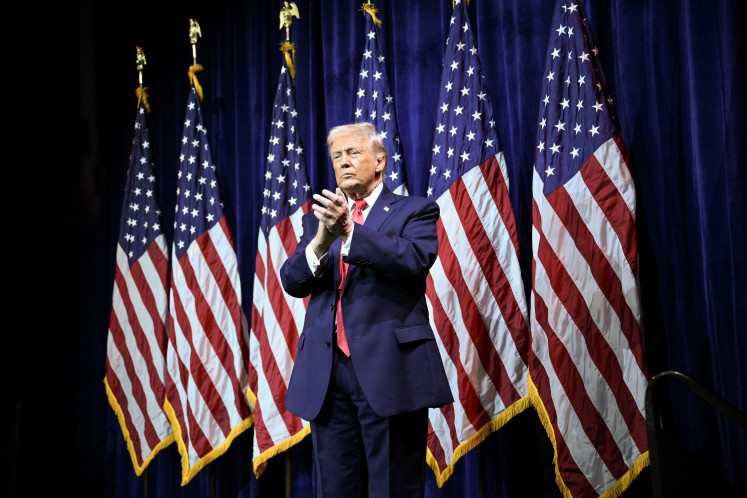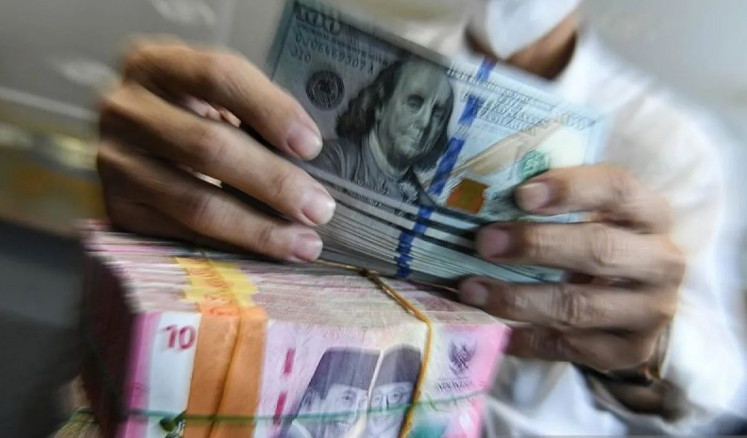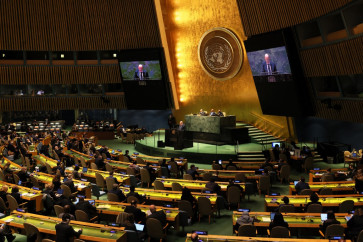Popular Reads
Top Results
Can't find what you're looking for?
View all search resultsPopular Reads
Top Results
Can't find what you're looking for?
View all search resultsIndonesia should take a stand with Ukraine
Taking sides might impede Russian lines of investment into Indonesia. One notable project is the construction of an oil refinery in Tuban, East Java worth US$14 billion.
Change text size
Gift Premium Articles
to Anyone
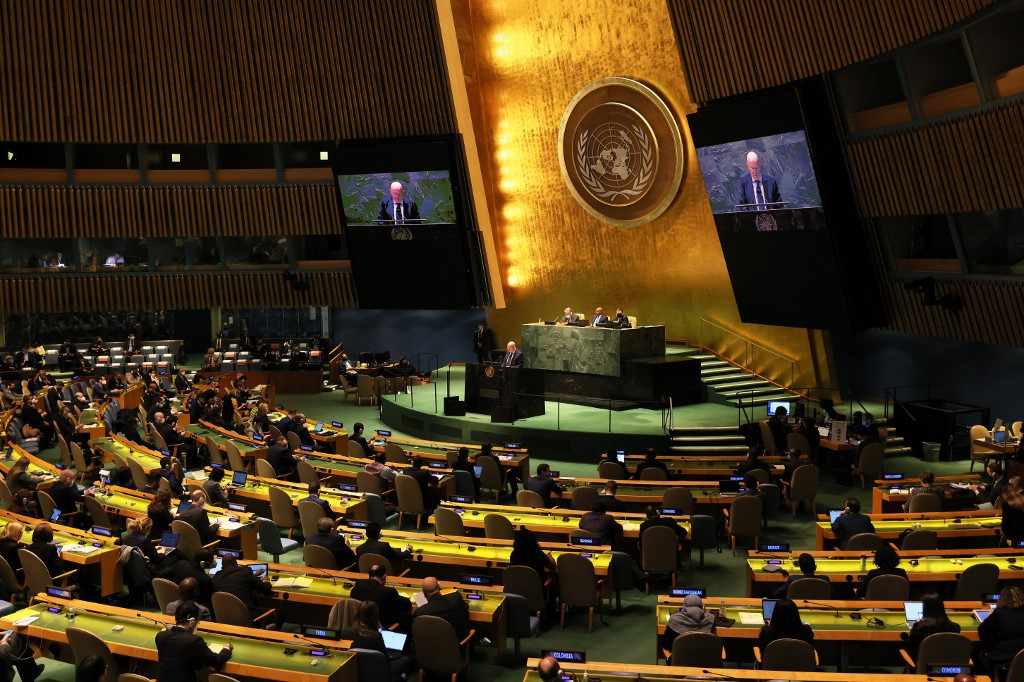 Members of the United Nations Security Council listen as Vasily Nebenzya, permanent representative of Russia to the UN speaks during a special session of the General Assembly at the UN headquarters on Feb. 28, in New York City, the United States. The UN Security Council voted on Sunday to hold a rare emergency special session of the General Assembly to discuss Russia's attack on Ukraine. under UN regulations. (AFP/Michael M. Santiago/Getty Images)
Members of the United Nations Security Council listen as Vasily Nebenzya, permanent representative of Russia to the UN speaks during a special session of the General Assembly at the UN headquarters on Feb. 28, in New York City, the United States. The UN Security Council voted on Sunday to hold a rare emergency special session of the General Assembly to discuss Russia's attack on Ukraine. under UN regulations. (AFP/Michael M. Santiago/Getty Images)
R
ussia’s unprovoked aggression of Ukraine has entered its third week. Moscow announced a new ceasefire Wednesday, but one thing is for sure: most of the international community has banded together to condemn Russia for its invasion.
The first week of the invasion gave the impetus for sweeping changes in the international community. NATO’s quick response force was mobilized for the first time. The European Union is currently considering membership for Ukraine under “special” circumstances. The United States and its allies swiftly implemented harsher economic sanctions on Russia by banning Russian banks from transacting via the Society for Worldwide Interbank Financial Telecommunication (SWIFT) network.
Switzerland, known for its policy of neutrality, backed the West’s economic sanctions, despite being at great cost to itself. Sweden, whose foreign policy is based on non-participation in military alliances, is seeing a shift in public opinion which favors joining NATO. Japan, in addition to economic sanctions, recently announced it would donate military equipment and open its doors to Ukrainian refugees, two moves that can only be described as extraordinary given Japan’s history.
In Southeast Asia, responses to Russia’s aggression have been mixed. Singapore stands out among its ASEAN counterparts. Singapore condemned Russia’s aggression as a “clear and gross violation of international law” and imposed its own sanctions on Russian banks and economic activity related to Russia.
This lucid stance stands in contrast to ASEAN’s milquetoast statements on the aggression so far. In the two statements ASEAN has issued so far, ASEAN has avoided mentioning Russia or calling Russia’s act of aggression an invasion. The statements simply implore both sides to reach a ceasefire. Despite this, during the United Nations General Assembly meeting, ASEAN members voted for a resolution condemning Russia.
Where does Indonesia stand in all of this?
On the international stage, Indonesia voted for the UN resolution. This is of course different from the domestic narrative, which remains mixed. On the one hand, President Joko “Jokowi” Widodo has refrained from making explicit statements condemning the aggression. The Foreign Ministry, on the other hand, has made it clear that the “military attack” was “unacceptable” and violated international law. The statement, however, avoided mentioning Russia.





